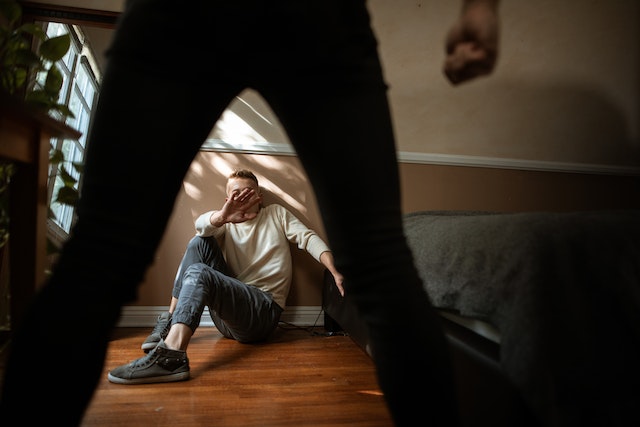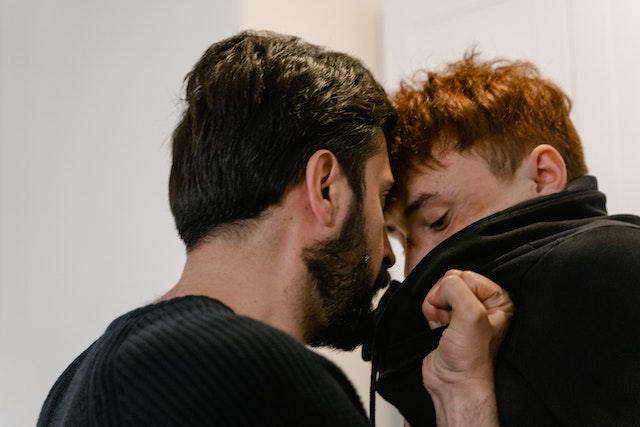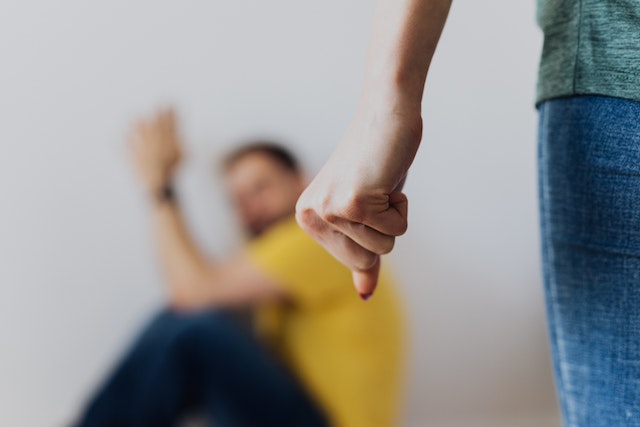In this article, we’ll be exploring how domestic abuse can affect men in relationships…
Domestic abuse is a harrowing reality that affects individuals in various relationships, regardless of their gender. In this comprehensive article, we shed light on the often-overlooked issue of domestic abuse against men. From contesting a non-molestation order to seeking support, we explore the different forms of abuse that men may experience within intimate partnerships.
By examining the emotional and physical impact, addressing barriers to seeking help, and exploring the long-term consequences on relationships, we aim to raise awareness and provide valuable insights into the experiences of men who endure domestic abuse.
Forms of Domestic Abuse and UK Statistics
When discussing domestic abuse, it’s crucial to recognise that men can also be victims of this pervasive issue. Domestic abuse against men takes various forms, encompassing not only physical violence but also emotional manipulation, psychological abuse, and financial control. Men may find themselves trapped in relationships where they experience physical aggression, verbal threats, intimidation tactics, controlling behaviours, isolation, and coercive control.
While it may surprise some, domestic abuse against men remains largely underreported, often hidden behind societal stereotypes and misconceptions. However, recent studies and surveys have started to unveil the shocking prevalence of male victims in the UK, challenging long-held assumptions and highlighting the urgent need for tailored support and intervention.
Emotional and Physical Impact
Domestic abuse inflicts profound emotional and physical wounds on male victims, leaving them grappling with the long-lasting effects of trauma. Emotional abuse, characterised by a relentless cycle of constant criticism, humiliation, gaslighting, and manipulation, gradually chips away at a man’s self-esteem, confidence, and overall mental well-being. The psychological impact can lead to debilitating conditions such as anxiety, depression, post-traumatic stress disorder (PTSD), and even suicidal ideation, causing immense suffering and despair.
In addition to the emotional toll, physical abuse exacts a heavy price on male victims. The onslaught of physical violence often results in injuries, leaving them with visible scars and hidden pain. The consequences may extend far beyond the immediate trauma, leading to chronic health issues and long-term physical disabilities.
The cumulative effects of abuse can devastate every aspect of a man’s life, shattering his sense of security, self-worth, and overall functioning.
Barriers to Seeking Help
While the path to healing and liberation should be readily available, men face unique challenges when attempting to escape the clutches of domestic abuse. Societal stereotypes and rigid gender norms create significant barriers, reinforcing the belief that men should be strong, self-reliant, and capable of defending themselves at all costs. The toxic masculinity narrative perpetuates the notion that seeking help equates to weakness, leaving male victims trapped in a vicious cycle of silence and isolation.
Moreover, limited awareness and understanding of domestic abuse against men within support services, legal systems, and society as a whole compounds the challenges. Male victims often fear being stigmatised, ridiculed, or not taken seriously when they finally gather the courage to speak out and seek help. The lack of specialised support tailored to their unique experiences further hampers their journey towards freedom and healing.
Empowering Male Victims to Reclaim Their Lives
Creating a safe and supportive environment is paramount in empowering male victims to break the chains of abuse and seek the help they desperately need. It begins with raising awareness about the existence of domestic abuse against men, dispelling prevalent myths, and challenging societal stereotypes head-on.
Education campaigns, public discourse, and media representations can play a pivotal role in shifting perspectives, encouraging open dialogue, and fostering understanding.
Dedicated support groups, helplines, and online platforms specifically tailored to male victims provide crucial lifelines. These resources offer confidential spaces for sharing experiences, offering guidance, and connecting with individuals who have walked a similar path. They serve as beacons of hope, illuminating the way towards healing, recovery, and renewed strength.
Impact on Relationships and Parenting Dynamics
Domestic abuse doesn’t only inflict wounds on the individual but also has far-reaching implications for relationships and parenting dynamics. The abusive behaviour erodes trust, undermines communication, and decimates intimacy, leaving lasting scars on the fabric of a relationship.
Male victims may find it incredibly challenging to rebuild trust in subsequent relationships, grappling with deep-seated insecurities and a lingering fear of vulnerability. The impact extends beyond romantic partnerships, seeping into co-parenting dynamics and potentially affecting the well-being of children involved.
Long-Term Consequences and Recovery
Escaping an abusive relationship doesn’t automatically erase the trauma endured by male victims. The aftermath of domestic abuse can reverberate through their lives, causing difficulties in various areas. Forming new relationships may become an uphill battle, as the scars of past abuse impact their ability to trust and establish healthy boundaries.
Managing emotions and recovering a sense of self-worth can be an arduous journey, often requiring professional help through counselling, therapy, and support groups tailored specifically to male victims.
Resources for Male Victims
Recognising the importance of accessible resources, numerous organisations and helplines specialise in providing support to male victims of domestic abuse. These resources offer a range of services, including emotional support, safety planning, legal advice, and assistance in navigating the legal system. Here are three valuable resources for men experiencing domestic abuse.
Men’s Advice Line – Visit the Men’s Advice Line website for confidential helpline support, practical advice, and signposting for male victims of domestic abuse.
Respect UK – Respect UK offers a helpline and online support for male victims of domestic abuse, providing information, advice, and resources to help them understand and address their experiences.
Mankind Initiative – The Mankind Initiative provides support and advocacy for male victims of domestic abuse, offering a helpline, information, and assistance in accessing local support services.
The Impact on Men
Domestic abuse against men is a deeply concerning issue that demands our attention, compassion, and commitment to change. By acknowledging its existence and understanding the unique challenges faced by male victims, we can collectively work towards creating a society that provides comprehensive resources, support, and legal protections for all individuals impacted by domestic abuse.
Together, we can break the silence, challenge stereotypes, and foster a culture of empathy, healing, and empowerment. Let us stand united in the pursuit of a future where no one suffers in silence and where every survivor’s voice is heard, respected, and supported on their journey to reclaiming their lives.




